Can a Boxer Eat Chicken?
Date Published: February 12, 2024 | Last Modified: February 16, 2024
Before we delve into the specifics of whether or not boxers can consume chicken, it's crucial to establish that yes, boxers can indeed enjoy this popular protein source. In this article, we will explore the health benefits that chicken can offer these energetic and playful dogs, as well as discuss the potential pros and cons of incorporating it into their diet. Additionally, we will address any safety concerns or misconceptions regarding feeding chicken to boxers, including whether it is toxic to them. Ultimately, the goal is to determine if chicken is a suitable and beneficial addition to your boxer's meal plan.
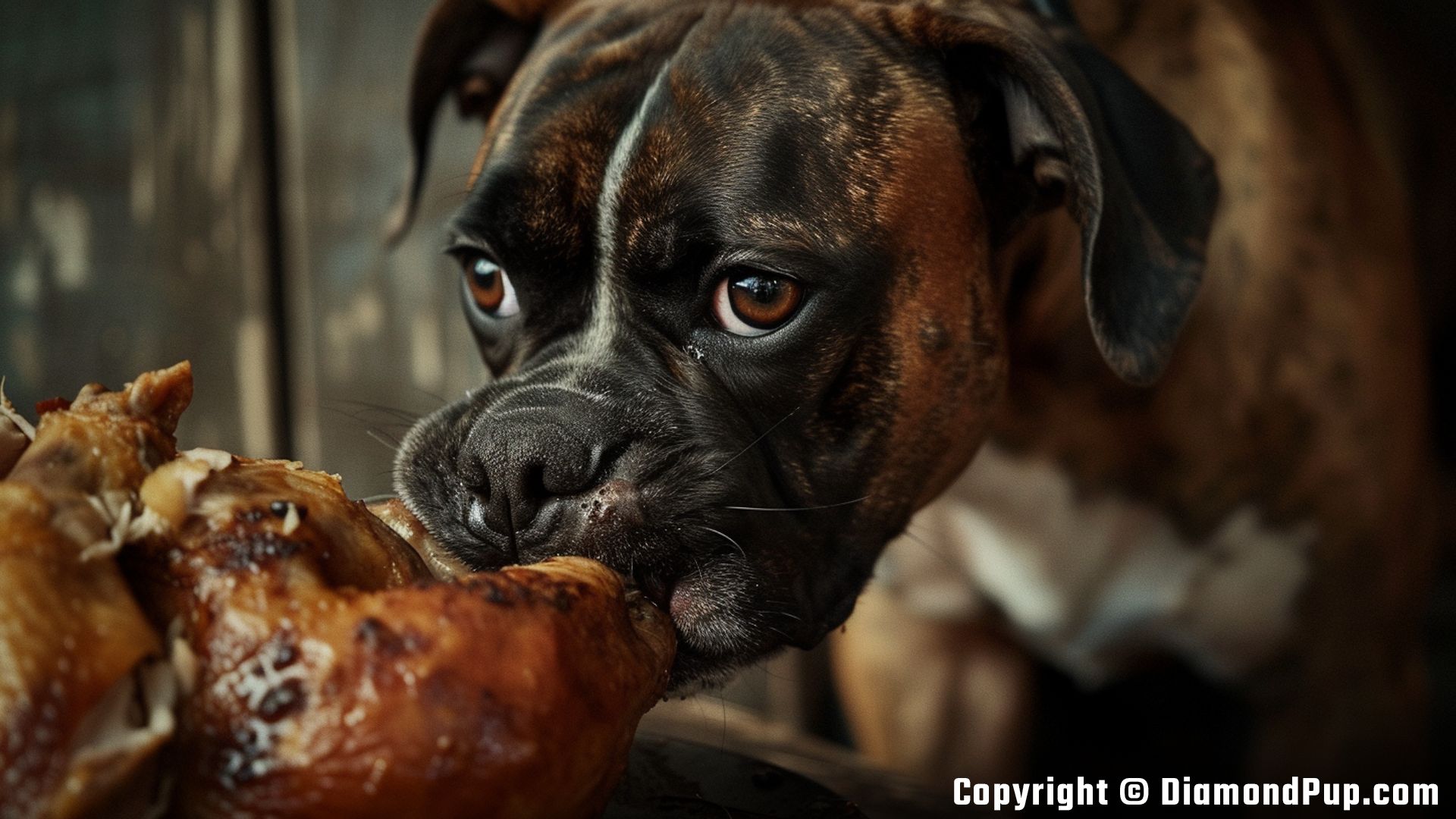
Are Chickens Good for Boxers?
Chicken can be an excellent protein source for boxers due to its high-quality amino acid profile, which is essential for muscle development and overall health. Additionally, chicken is relatively lean, making it a great option for boxers who need to maintain a healthy weight and muscle mass. When feeding chicken to your boxer, it's important to choose skinless, boneless cuts to avoid any potential digestive issues. Cooked chicken is the safest option, as it eliminates the risk of foodborne illnesses that can be present in raw meat.
Furthermore, incorporating chicken into your boxer's diet can provide essential vitamins and minerals, such as B vitamins, iron, and zinc, which are crucial for energy metabolism and immune function. However, it's essential to ensure that chicken is balanced with other nutrients to meet your boxer's specific dietary needs, such as carbohydrates and fats for sustained energy and omega-3 fatty acids for skin and coat health. Overall, chicken can be a beneficial and nutritious addition to your boxer's diet when fed in moderation and in combination with a balanced meal plan.
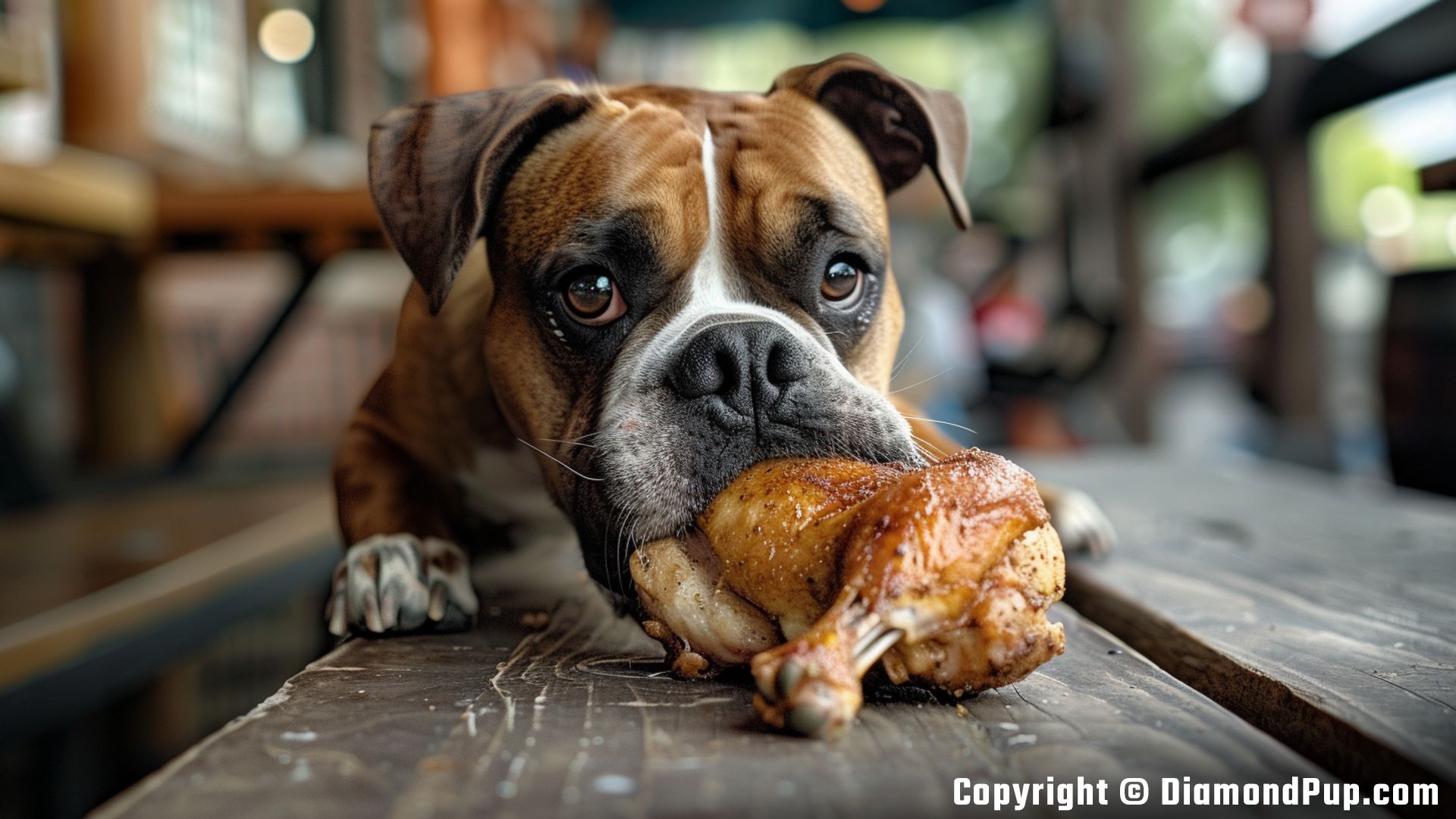
Understanding the Benefits of Chicken for Boxers
Chicken can be an excellent protein source for Boxers, as it is rich in essential nutrients such as protein, vitamins, and minerals. Protein is essential for your Boxer's muscle development, repair, and overall health. Additionally, chicken is a good source of amino acids that are important for your dog's immune system and metabolism. The vitamins found in chicken, such as B vitamins like niacin and B6, play a crucial role in maintaining your Boxer's energy levels and promoting healthy skin and coat.
Moreover, chicken is a lean meat option that can help your Boxer maintain a healthy weight and prevent obesity, a common issue in this breed. Its high protein content can also support your Boxer's active lifestyle, providing the energy they need for their playful and energetic behavior. Overall, incorporating chicken into your Boxer's diet can offer a variety of health benefits to keep them happy and thriving.
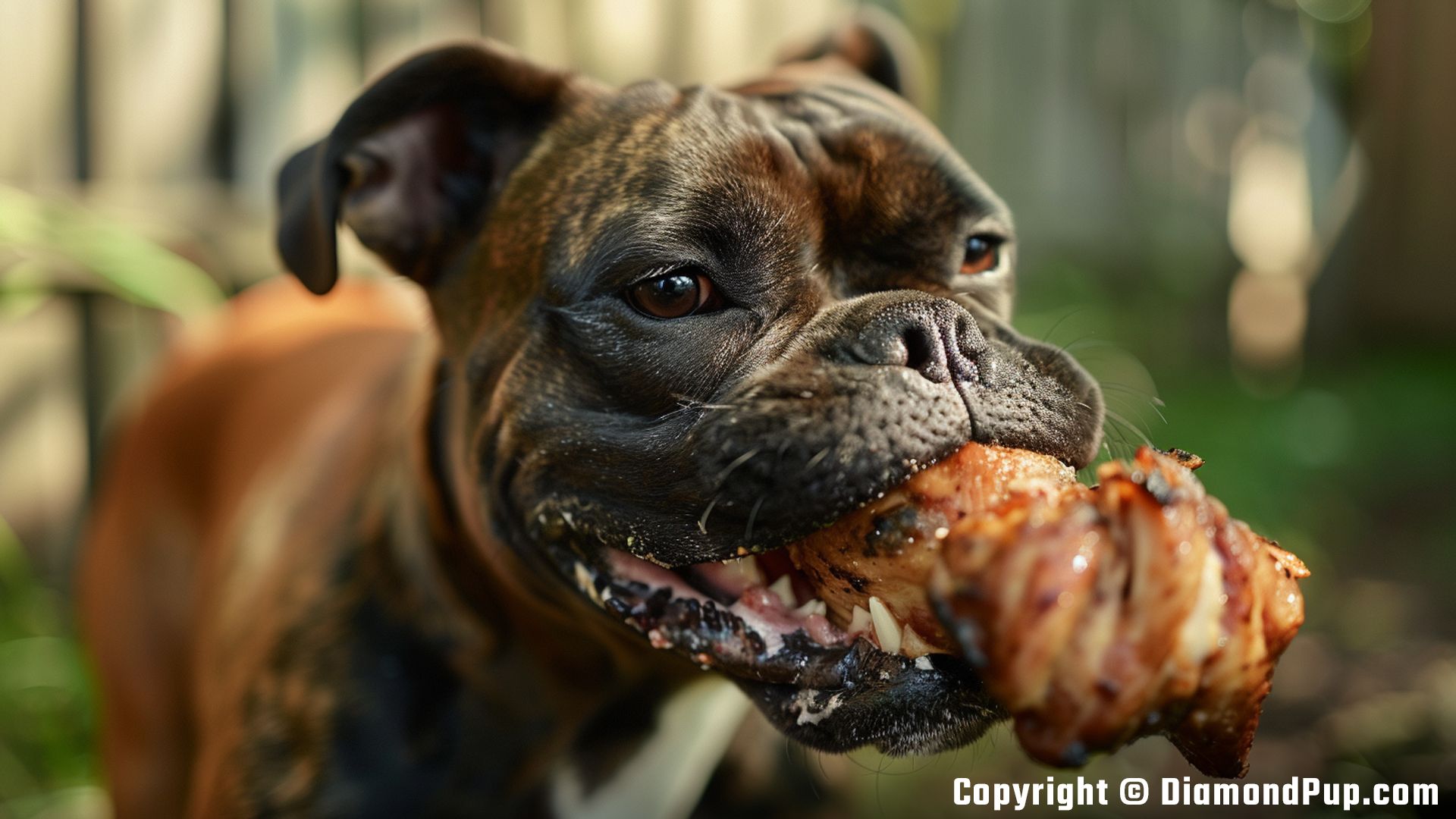
Nutritional benefits of Chicken for Boxers
Chicken is an excellent source of lean protein for boxers, which is essential for supporting their muscle development and overall health. It is also rich in amino acids, such as lysine and methionine, which play a vital role in maintaining your boxer's energy levels and immune function. In addition, chicken provides essential vitamins and minerals like Vitamin B6, niacin, and phosphorus, all of which are important for your boxer's metabolism and bone health.
When selecting chicken for your boxer, opt for skinless, boneless cuts to avoid excess fat and reduce the risk of digestive issues. It's crucial to ensure that the chicken is cooked thoroughly to eliminate any harmful bacteria that could potentially harm your dog. Overall, incorporating chicken into your boxer's diet in moderation can offer a range of nutritional benefits that can support their active lifestyle and well-being.
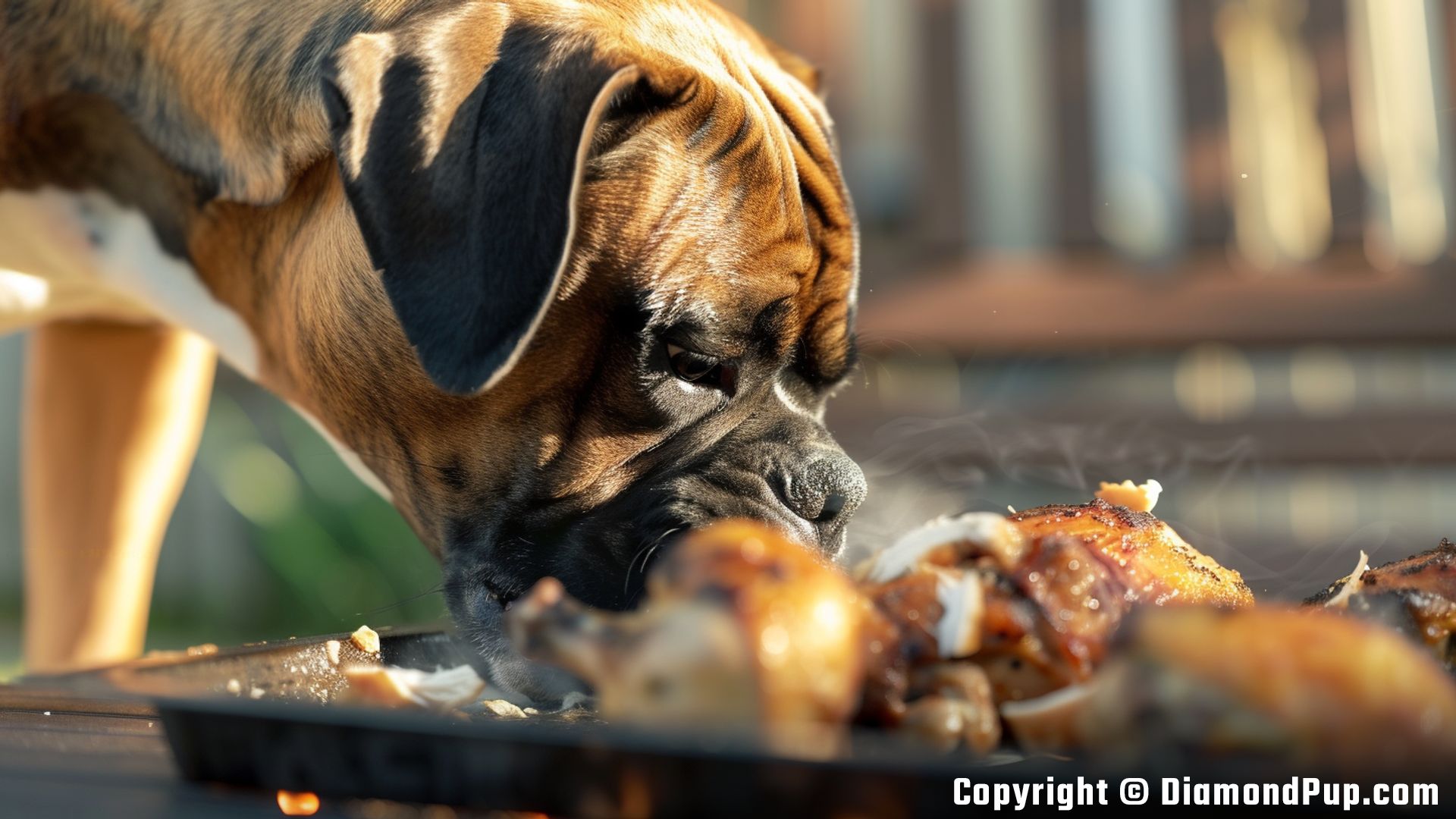
Safely Introducing Chicken to Your Boxer's Diet
When introducing chicken to your boxer's diet, it's essential to start slowly and monitor for any adverse reactions. Begin by cooking the chicken thoroughly without any seasonings, as dogs can be sensitive to certain spices and additives. Offer small portions of cooked, boneless, and skinless chicken to see how your boxer reacts. Look for signs of gastrointestinal upset, such as vomiting or diarrhea, which may indicate an intolerance or allergy. If all goes well, you can gradually increase the amount of chicken in their meals while ensuring it remains a balanced part of their overall diet.
It's important to maintain a balanced diet for your boxer by incorporating chicken with other essential nutrients like carbohydrates, healthy fats, and vitamins. Consult with your veterinarian or a veterinary nutritionist to create a well-rounded meal plan that meets your boxer's specific nutritional requirements based on their age, weight, and activity level. By introducing chicken in a controlled manner and monitoring your boxer's response, you can safely enjoy the benefits of this protein-rich and delicious addition to their diet.
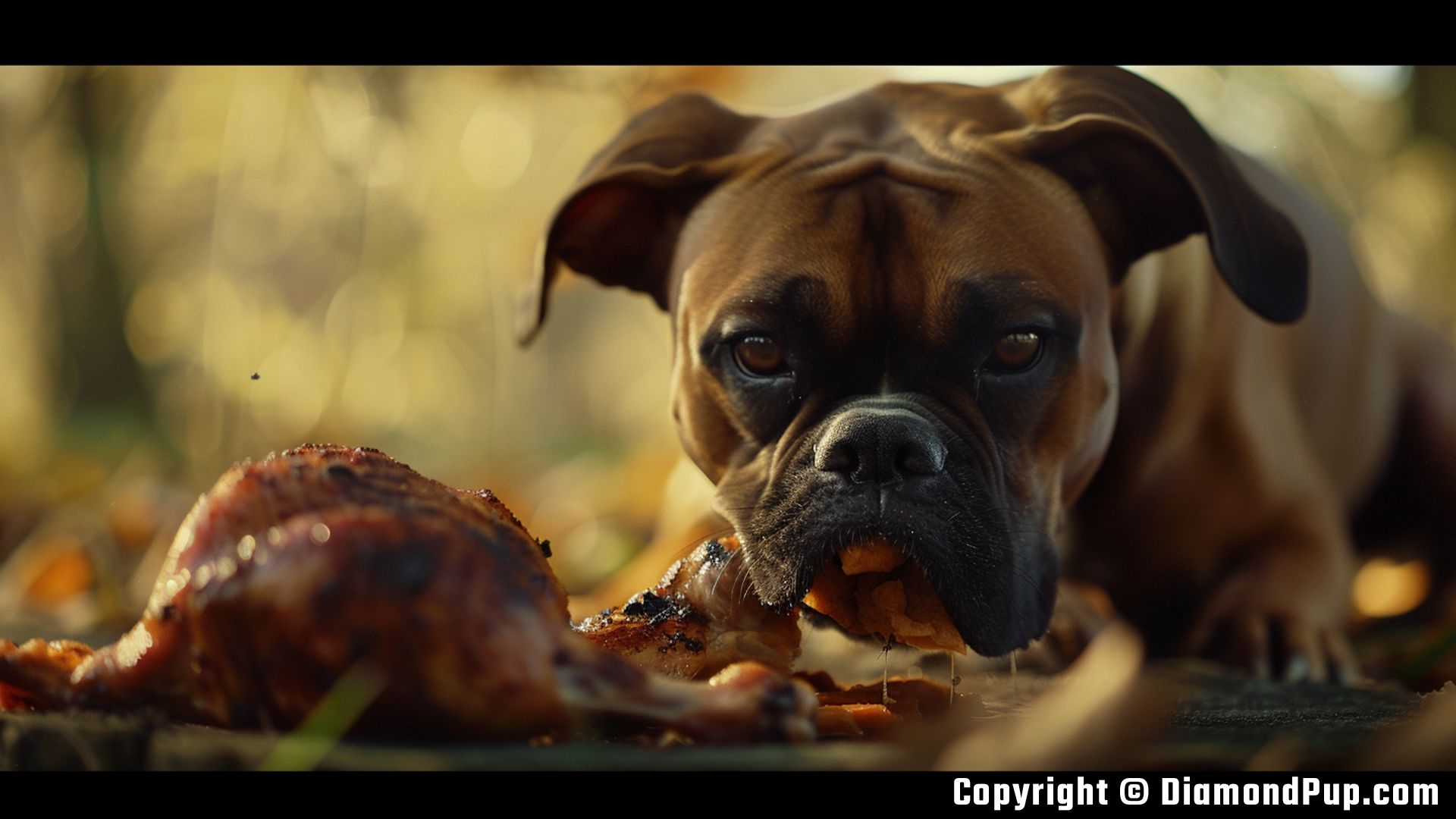
How much chicken can a dog eat safely?
When it comes to determining the appropriate amount of chicken for your Boxer to consume, it's essential to consider their size, age, activity level, and overall health status. As a general guideline, chicken should typically make up no more than 10-15% of your dog's total daily caloric intake. For a typical adult Boxer weighing around 50-70 pounds, this equates to roughly 1-1.5 cups of cooked, boneless, skinless chicken per day, divided into two or more meals.
However, it's crucial to remember that chicken should not be the sole component of your Boxer's diet. It should be balanced with other essential nutrients such as carbohydrates, fats, vitamins, and minerals to ensure they receive a complete and balanced meal. Always consult with your veterinarian or a qualified veterinary nutritionist to determine the precise amount of chicken that is suitable for your individual Boxer based on their specific dietary needs.
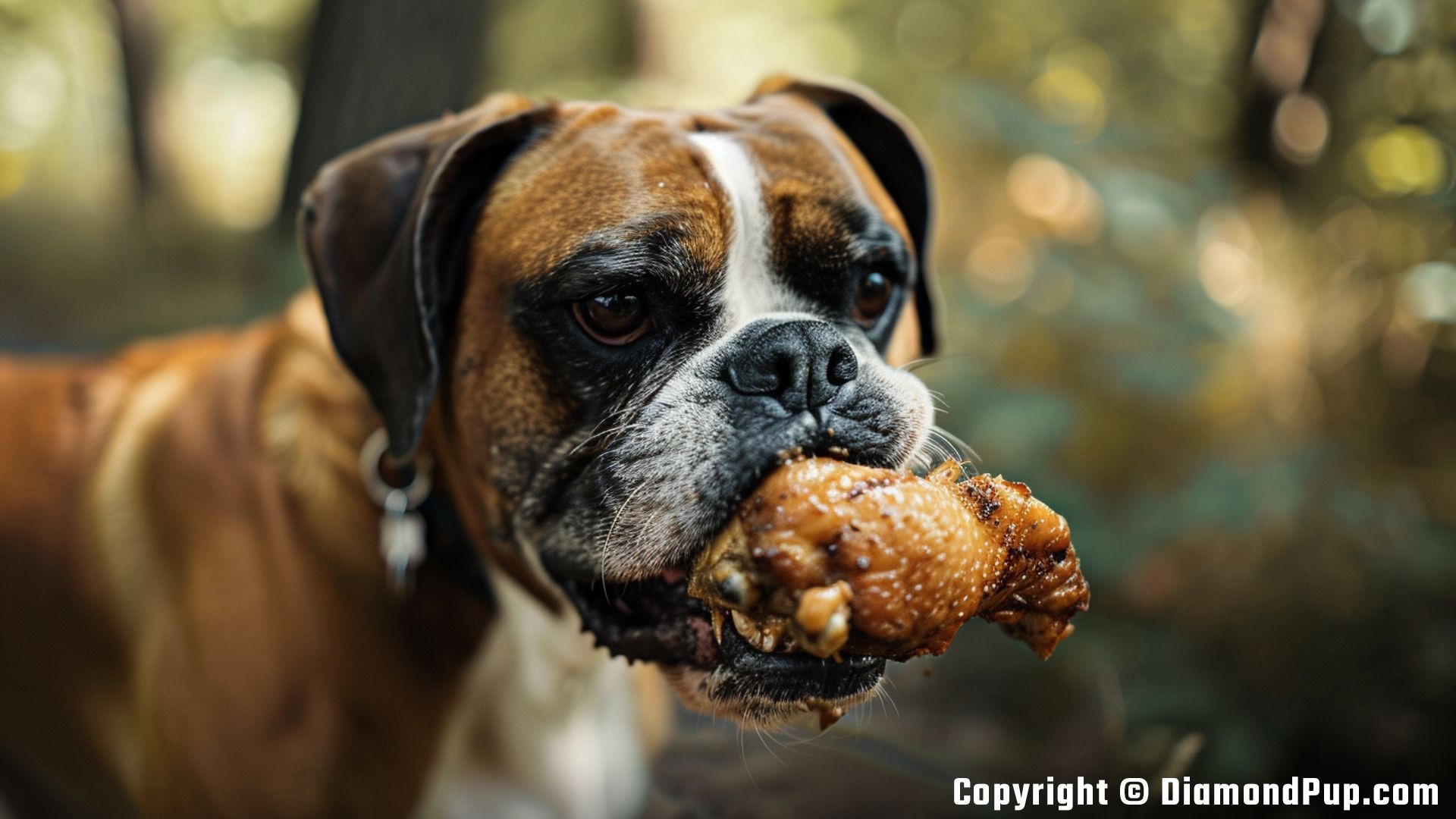
Tips to Remember When Feeding Your Boxer Chickens
When feeding your Boxer chicken, it's essential to keep a few key factors in mind to ensure their health and well-being. Firstly, it's crucial to provide cooked chicken without any bones, as cooked bones can splinter and pose a choking hazard or cause internal injuries. Secondly, opt for skinless, lean cuts of chicken to minimize the intake of excess fat, which can lead to obesity and other health issues in Boxers. People also ask are boxers allowed to have bacon Additionally, ensure that the chicken is plain and free from any seasonings, such as garlic or onion, as these ingredients can be toxic to dogs. Lastly, chicken should only be offered as a part of a balanced diet, alongside other essential nutrients like carbohydrates, fats, vitamins, and minerals tailored to meet the specific needs of Boxers.
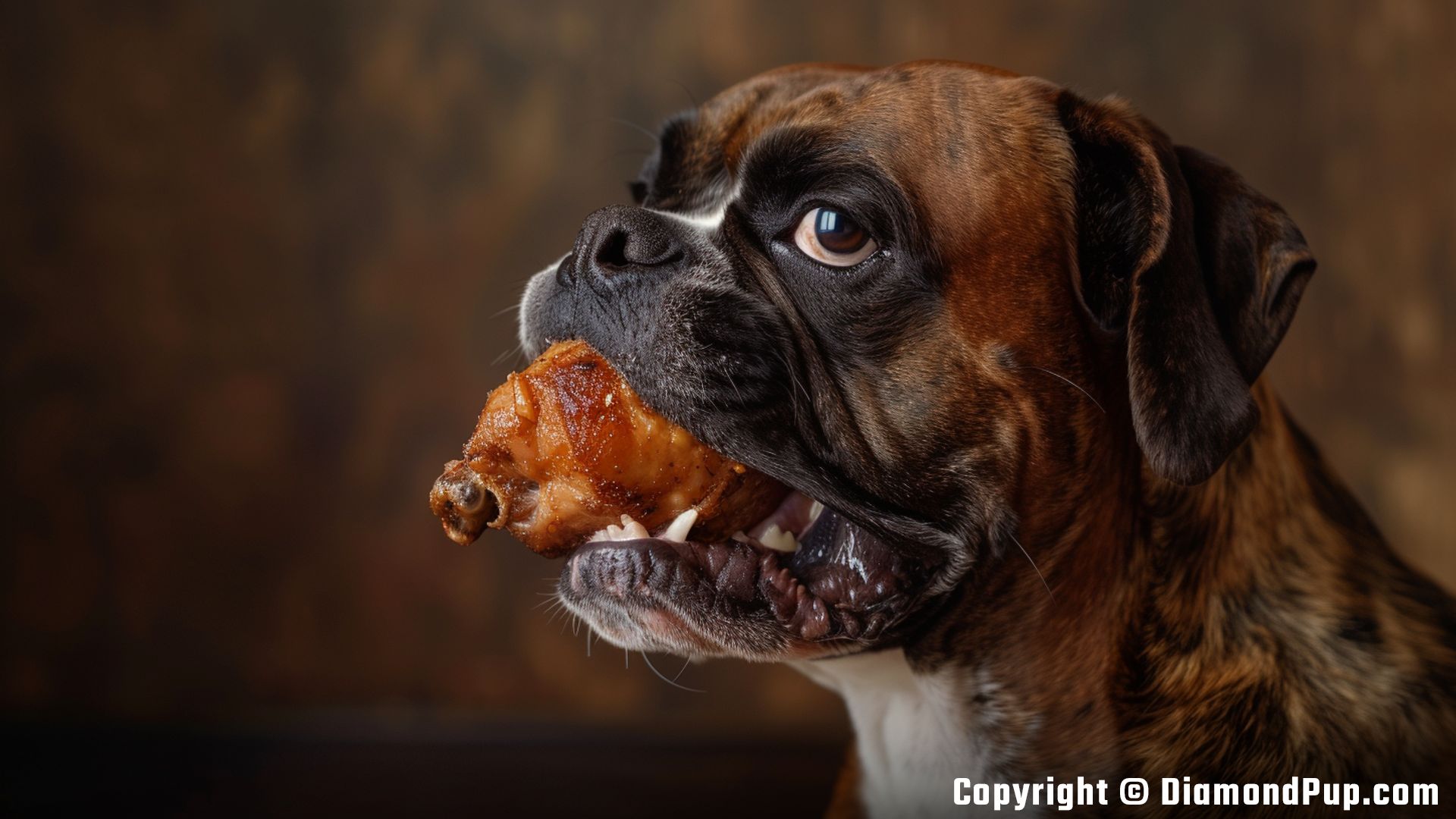
Feeding Your Boxer Chickens
When feeding your Boxer chicken, opt for lean cuts such as skinless, boneless chicken breast or thigh meat. These cuts are high in protein, which is essential for muscle development and maintenance in active breeds like boxers. Avoid feeding your dog chicken with bones, as they can splinter and pose a choking hazard. Additionally, be cautious of seasoning or marinades that may contain ingredients harmful to dogs, such as garlic or onions. Cook the chicken thoroughly to kill any harmful bacteria that could make your Boxer sick.
It's important to note that chicken should not make up the entirety of your Boxer's diet. It should be fed in conjunction with a balanced commercial dog food or a homemade diet formulated by a veterinary nutritionist. Remember, each dog is unique, so consult with your veterinarian to determine the appropriate amount of chicken to include in your Boxer's diet based on their individual needs and health status.
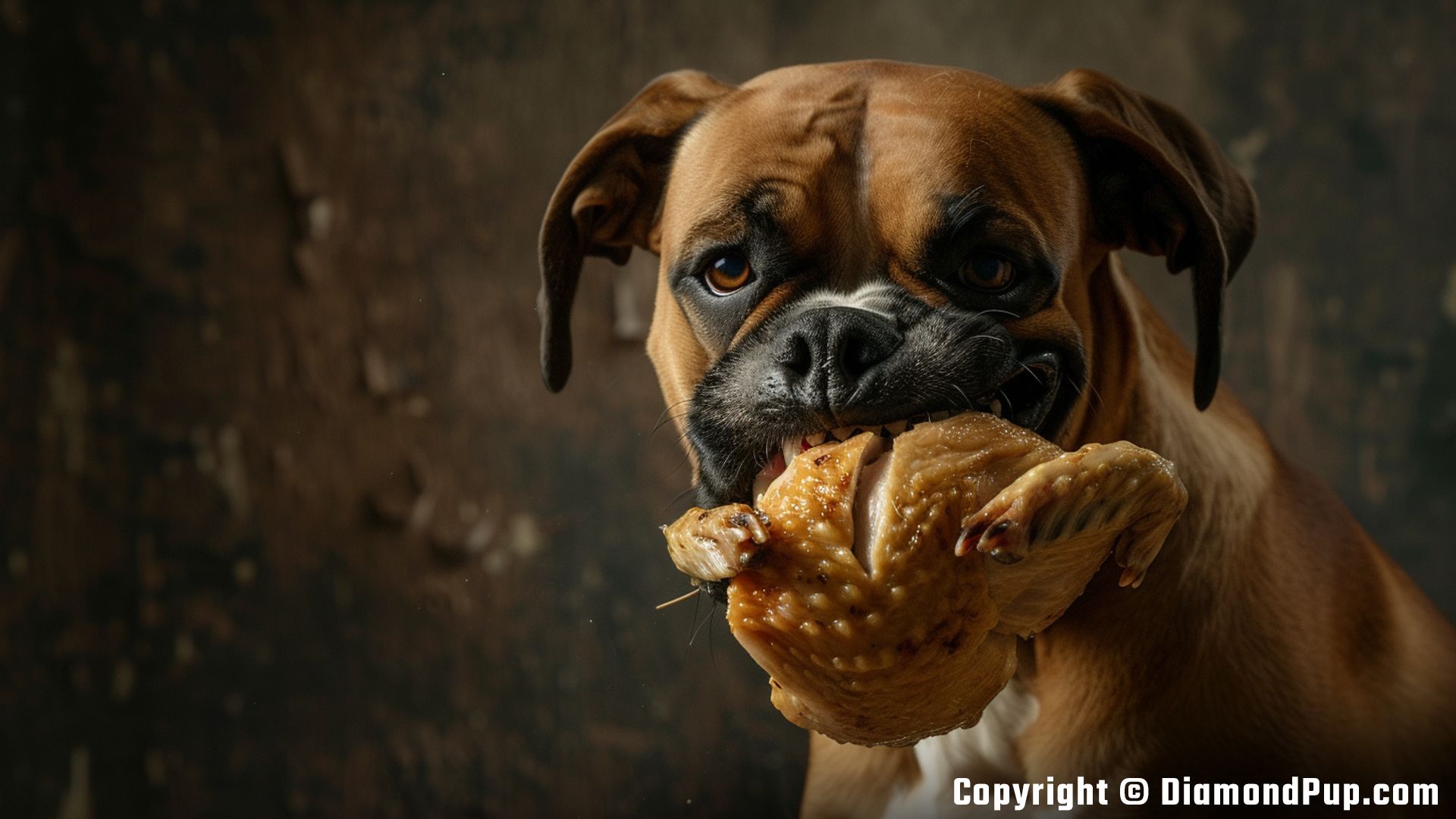
How to properly feed your dog Chickens
When it comes to feeding your Boxer chicken, it is essential to ensure that the poultry is cooked thoroughly to eliminate any harmful bacteria, such as salmonella. Always remove the skin and bones before serving the chicken to your dog, as these can pose a choking hazard or cause digestive issues.
Furthermore, it is crucial to incorporate the chicken into a balanced meal plan that meets all of your Boxer's nutritional needs. This may include adding vegetables, fruits, and grains to provide essential vitamins, minerals, and fiber. Consult with your veterinarian or a canine nutritionist to determine the appropriate portion sizes and frequency of chicken in your dog's diet.
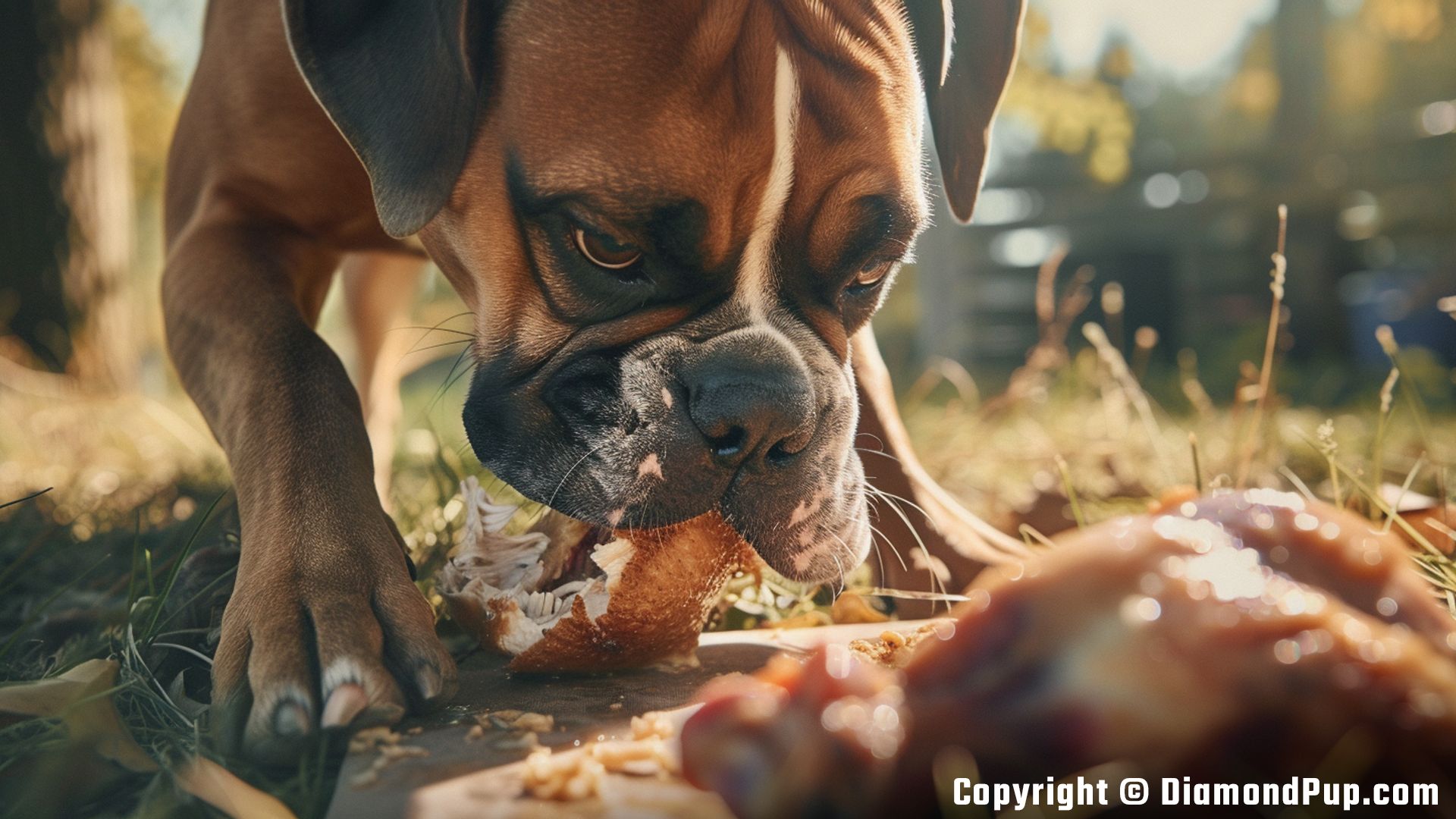
Do Boxers Like Chickens?
Boxers are known to have a hearty appetite and generally enjoy the taste of chicken. This protein-rich meat is not only delicious for them but also provides essential nutrients to support their active lifestyle. Chicken is a highly digestible protein source, making it a great option for boxers with sensitive stomachs or food allergies. It is important to ensure that the chicken is fully cooked and free from any bones, as cooked bones can splinter and cause internal injuries to your boxer.
When feeding chicken to your boxer, it is best to offer it in moderation and as part of a balanced diet. Too much chicken can lead to weight gain and nutritional imbalances. Additionally, to add variety to their diet, you can mix the chicken with other dog-friendly fruits and vegetables like sweet potatoes, carrots, or green beans. Remember to consult with your veterinarian to determine the appropriate portion size and feeding frequency based on your boxer's individual needs and activity level.
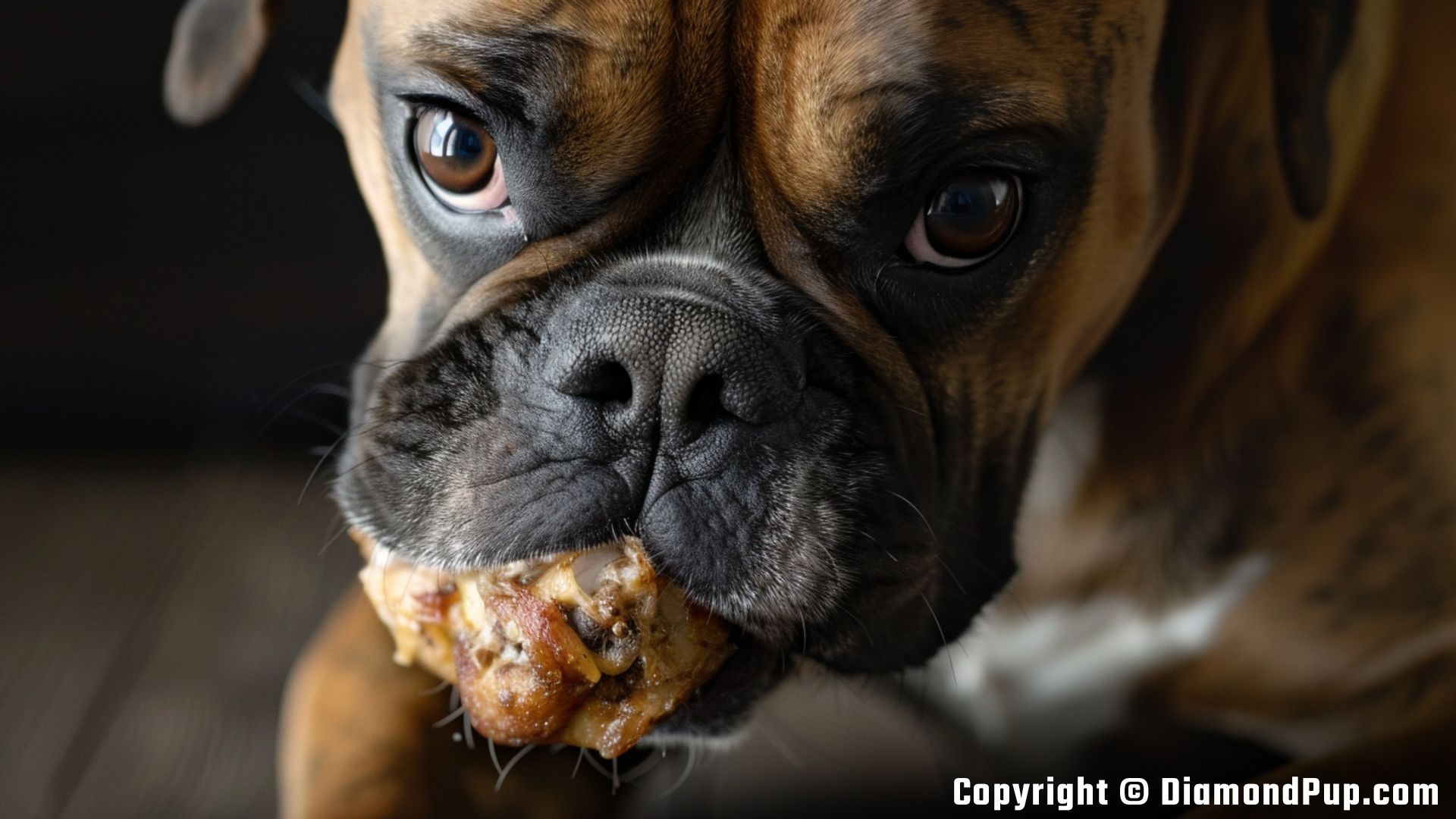
Special Consideration for Boxers
Boxers are a highly active and muscular breed, known for their playful and energetic nature. Due to their lean body composition and high energy levels, it is essential to provide them with a balanced diet that supports their overall health and performance. When selecting a chicken-based food for your Boxer, opt for a formula specifically designed for active or large breeds. These formulas are typically higher in protein and fat content, which are vital for maintaining muscle mass and sustaining their energy levels throughout the day.
Additionally, consider choosing a chicken dog food that contains glucosamine and chondroitin. These ingredients support joint health and mobility, which is crucial for Boxers who are prone to certain musculoskeletal issues. By selecting a high-quality chicken-based diet tailored to the unique needs of Boxers, you can ensure that your furry friend stays healthy, happy, and full of energy.
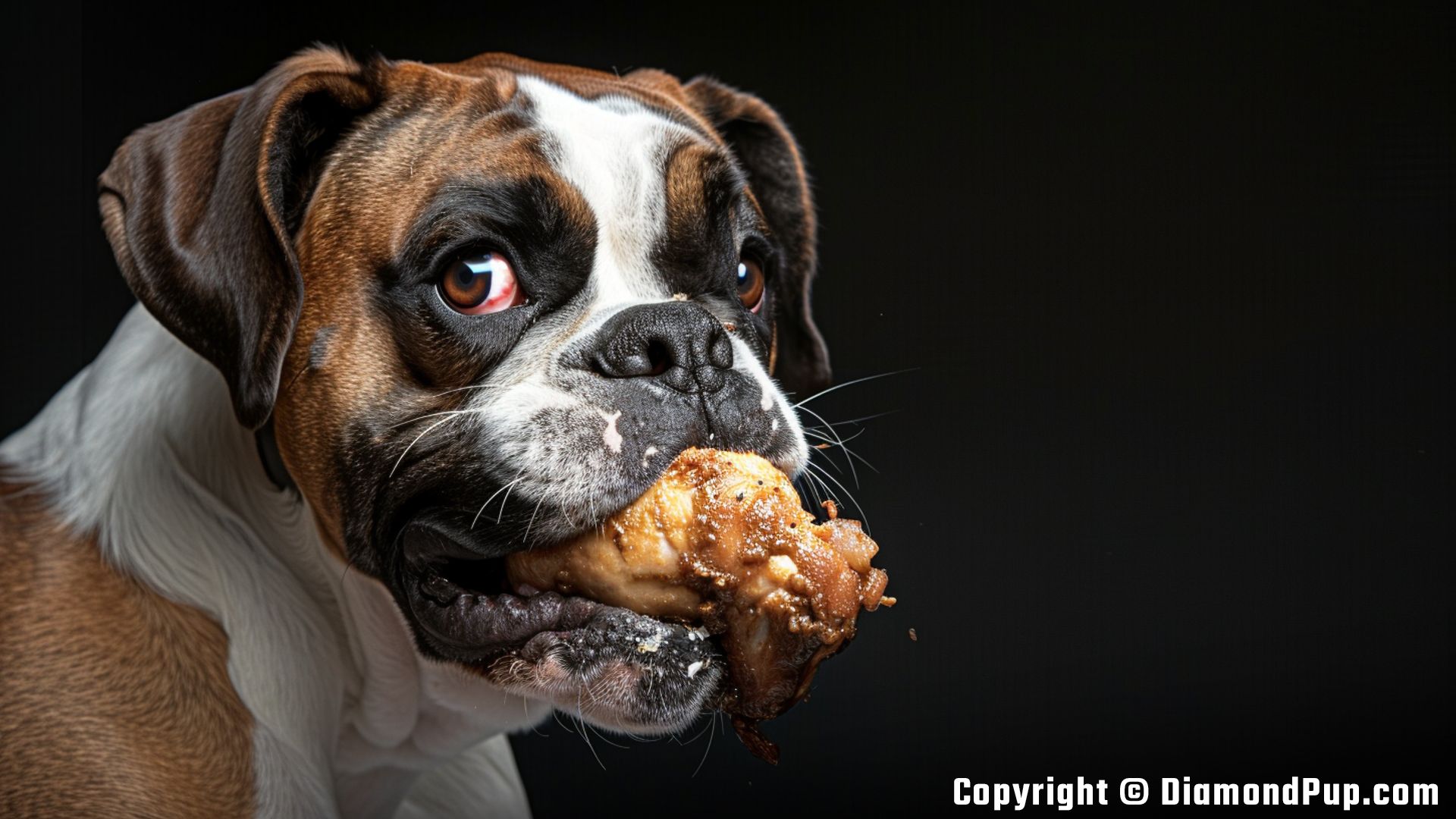
Can Puppies Have Chicken?
When it comes to feeding chicken to Boxer puppies, it's essential to ensure that the meat is cooked thoroughly to kill any harmful bacteria that could potentially cause gastrointestinal issues. Additionally, it's crucial to remove all bones from the chicken before serving it to your puppy, as bones can pose a choking hazard or cause internal injuries. Chicken breast or lean chicken meat is a fantastic protein source for Boxer puppies, providing them with essential nutrients for growth and development.
As with any new food introduction, it's best to start slowly and monitor your puppy for any signs of digestive upset or allergies. If your Boxer puppy shows any adverse reactions after consuming chicken, such as vomiting, diarrhea, or itching, it's best to consult with your veterinarian to determine if chicken is a suitable addition to their diet.
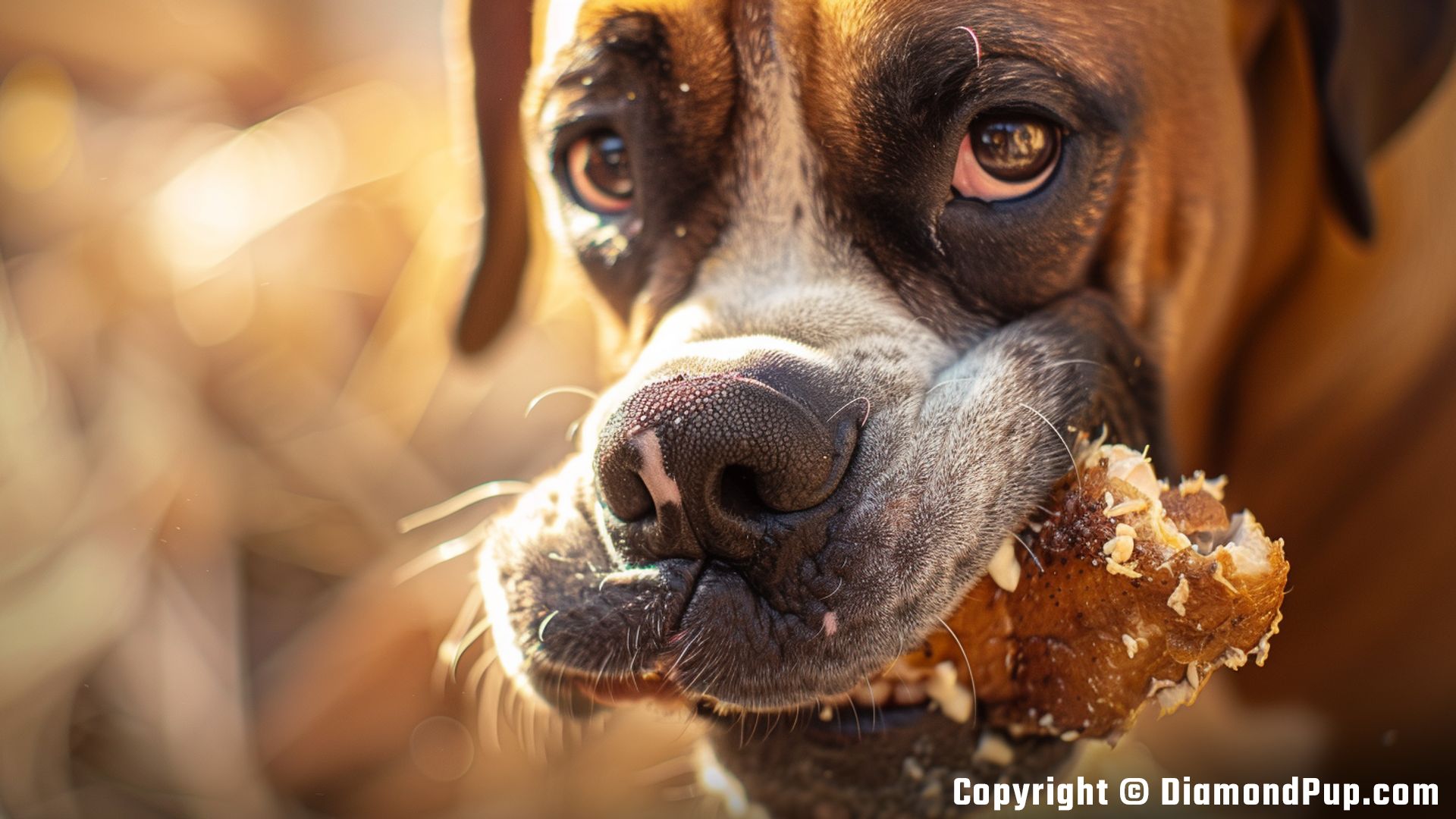
Are there any Boxers that shouldn't eat Chicken?
While chicken can be a great source of nutrition for most boxers, there are some individuals within this breed that may have specific dietary sensitivities or allergies to poultry. People also ask about the health benefits of pasta for boxers and if it could be a suitable alternative. It's essential to monitor your boxer's reaction to chicken, especially if you are introducing it for the first time. Signs of an adverse reaction may include itching, gastrointestinal upset, or skin issues. If you notice any of these symptoms, it's best to consult with your veterinarian to determine if chicken should be avoided in your boxer's diet.
Recipes for Feeding Your Boxer Chickens
When it comes to feeding your boxer chicken, it is important to ensure that the meat is cooked thoroughly to eliminate any harmful bacteria that could potentially cause foodborne illnesses. Avoid seasoning the chicken with any ingredients such as garlic or onions, as these can be toxic to dogs. A simple recipe for your boxer could involve baking or boiling chicken breast without any added salt, spices, or oils. This will provide a lean source of protein that is easy for your boxer to digest.
Another option could be to mix cooked, shredded chicken with some cooked vegetables like carrots or green beans for added nutrients and fiber. This balanced meal can help support your boxer's overall health and energy levels. Always be sure to consult with your veterinarian to determine the right portion sizes and frequency of feeding chicken to your boxer based on their individual needs and lifestyle.
Alternatives to Chickens for Boxers
While chicken is a fantastic protein source for boxers, there are also alternative options you can consider incorporating into their diet. One excellent alternative is turkey, which is also a lean protein that provides essential amino acids for muscle health. Additionally, fish such as salmon or sardines can offer omega-3 fatty acids for a healthy coat and skin. People also ask, can I feed pasta to a boxer, and it's important to note that pasta can be included occasionally as part of a balanced diet, provided it does not contain any harmful additives or spices. Lastly, if your boxer has allergies or sensitivities to poultry, lean beef or venison can be suitable protein sources.
Common Questions About Boxers and Chickens
One common question that arises when it comes to feeding boxers chicken is whether or not they can consume the bones. It is crucial to never feed cooked bones to any dog, including boxers, as they can splinter and cause serious internal damage. However, raw bones, such as raw chicken necks or wings, can be safe for boxers to chew on as they are softer and less likely to splinter.
Another important consideration is whether boxers can eat chicken skin. While chicken skin is a source of fat, which is important for a boxer's energy levels, it should be fed in moderation. Excessive fat can lead to obesity and other health issues in boxers. Therefore, it is best to feed skinless chicken meat to your boxer to ensure they are getting the protein without an excess of fat.
Subscribe Now
Stay updated with the latest news and articles! We'll keep you updated on the latest tips for your pet Boxer
